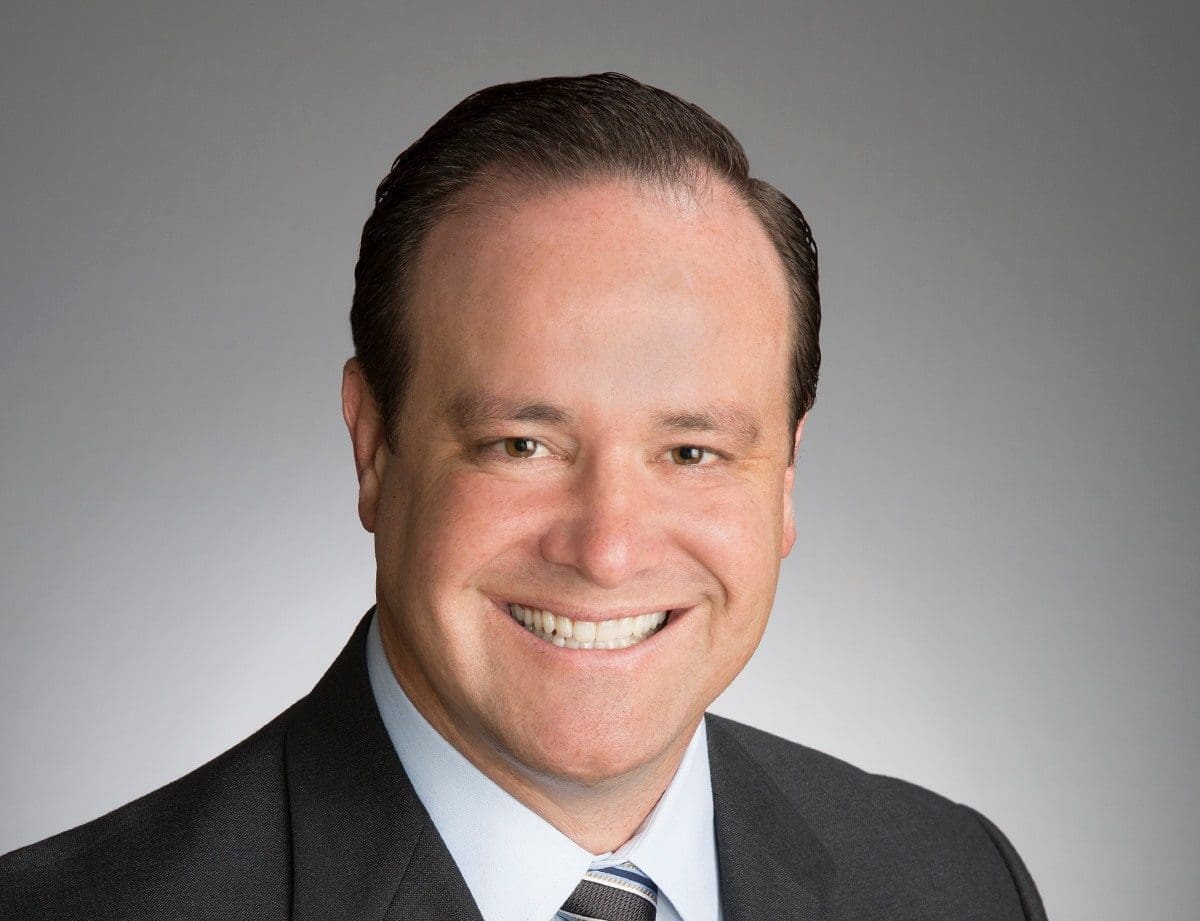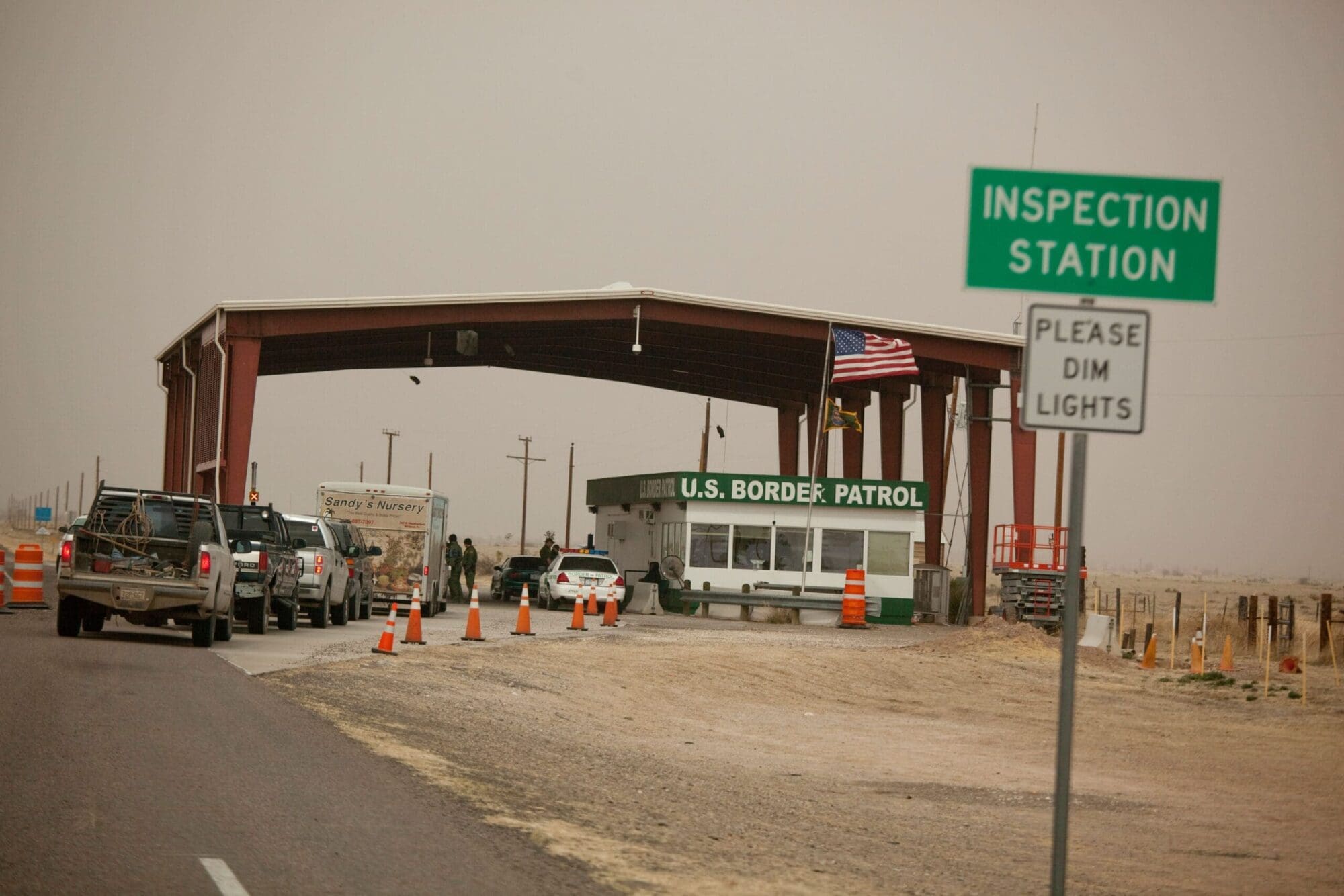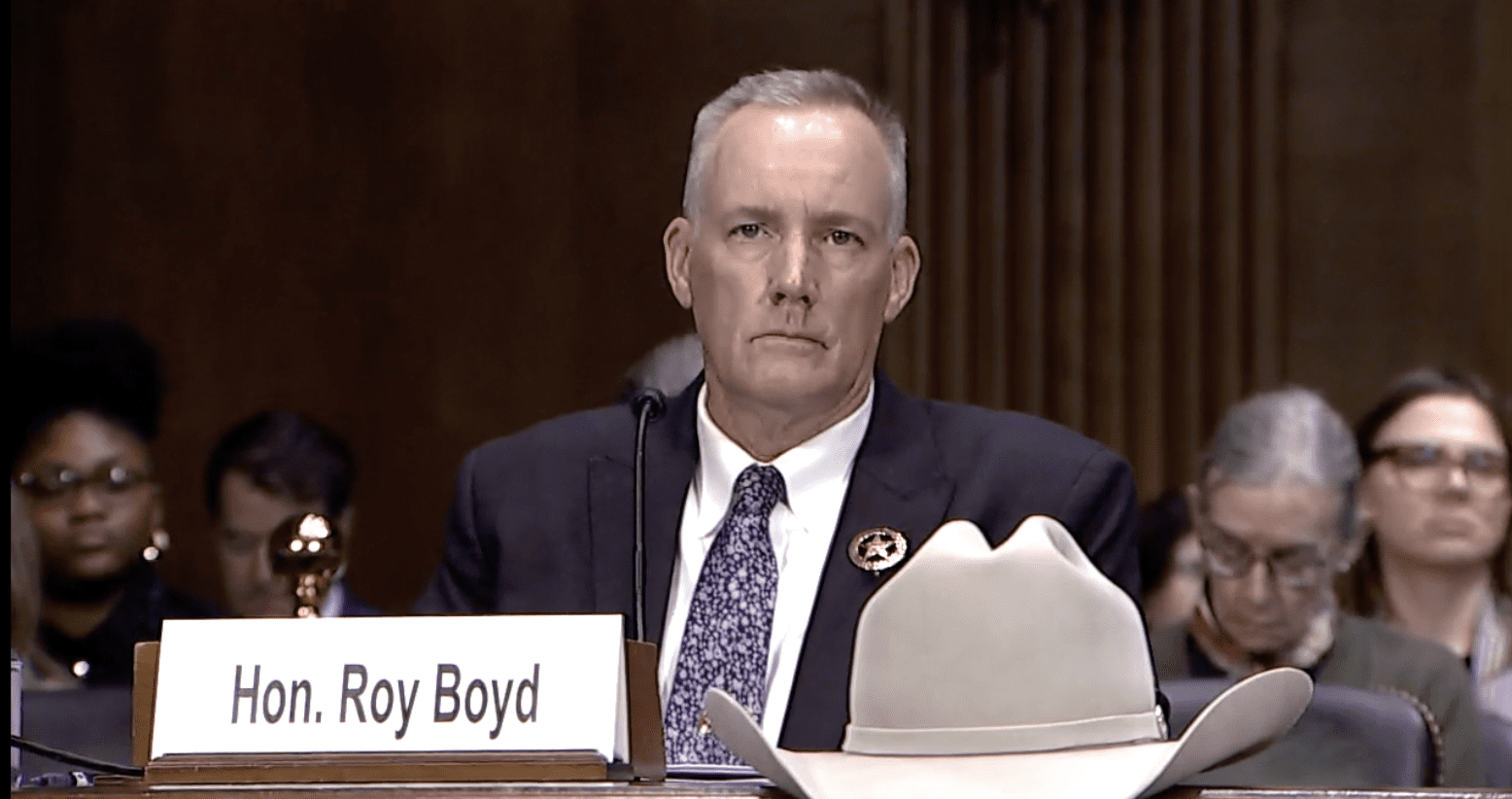In March, District 4 Councilmember Moon sat down with Texas Scorecard for an interview about where he stands on issues such as public safety, taxpayer-funded lobbying, property taxes, and Panther Island.
Along with the office of mayor and the seven other city council seats, District 4 is on the ballot for the May 1 election. Moon, a former bank CEO and medical company CFO, has been on the city council since May 2015.
__________
Texas Scorecard: What would you tell citizens you’ve accomplished for them since being elected?
Moon: With the City of Fort Worth, I’ve worked to identify revenue sources that were not tied to property taxes. I’ve cleaned up government inefficiencies. I’ve corrected our waste. If we go back to revenue, I can say I have [made] over a $15 million annual impact to our budget.
So many governments in Texas, not just city, look first to property taxes. “How do we increase our revenue? First with the property taxes.” That’s not been my mission. My mission is to say we have 300 revenues … that we can focus on: user fees, citations, those types of things.
We have now a revenue manual that includes a schedule of fees that any company would have. … And we increased user fees and citations [by] $15 million a year last year. Some user fees and citations had not been increased since the 1990s, because no one ever took the time to look at it.
He also discussed the city’s bond portfolio.
I looked at the bond portfolio. We had a billion-dollar bond portfolio; we were making 0.67 percent return because we’re investing in short-term investments. But yet the time horizon for the majority of that money was seven to 10 years. Our investments did not match our needs, so we changed our investment policy of the city to invest in longer-term securities. We now make just under 2 percent a year in that bond portfolio, a difference of about $15 million a year.
Texas Scorecard: Panther Island is a real estate redevelopment project near the Trinity River that’s been disguised as flood control. For over a decade and with $303 million in taxpayer money spent, it’s still not done. The total estimated cost is $1.2 billion, and the City of Fort Worth is one of the stakeholders. What’s your plan to protect taxpayers from this boondoggle, and will you push for a complete financial and forensic audit?
Moon: I’m happy to request a forensic audit, [but] you don’t have to do a forensic audit—you can do an audit. They paid Whitley Penn about $500,000 a year to do an audit of their financials.
They should be able to show they’re more accountable. I’ll say we need more transparency with the financials.
Moon went on to say he believes the project must be finished.
Obviously, [Panther Island] needs to happen. There’s too much invested at this point. The TRWD board needs to do a better job.
Texas Scorecard: Are you satisfied with the job the Tarrant Regional Water District has done so far?
Moon: At this point, they are getting the bridges built, which is good. But we have not secured the long-term financing, and at the city’s request, they did separate the economic piece from the flood control piece. That was a good move by them.
Texas Scorecard: In all major Texas cities, crime went up last year, and you pointed out homicide went up 58 percent in Fort Worth. What’s your proposal to deal with this?
Moon: First, we know last year was a 25-year high with murder rates per capita. For 2021 year-to-date, we are already again over 50 percent higher from just last year. It’s not yet solved. … Back in August, we should have gone ahead and hired the six sergeants that the tactical study had recommended that we hire. I was the lone person that pushed for that during the budget—minimal [of] $1.5 million—but I could not get that through until January of this year. The second thing we need to do is we need to hire more officers; we’re about 35 officers short, and we have to hire 35 a year.
In the city of Fort Worth, we’ve done some good work with crime prevention programs, but we’ve got to hire more people to do more patrols on the street. Our police need to follow the broken-window theory; as a city, [if] someone’s committing a crime that may be a broken window, we’re going to go ahead and cite that person and make sure we teach them that breaking the law is not fun, and so they aren’t encouraged to break other laws in the future that are bigger.
Texas Scorecard: Where do you stand on defunding the police?
Moon: I am for funding the police. I see the value of police in public safety. Specifically, what we voted on as a city in July—that passed 65 percent to 35 percent—was to fund school resource officers and neighborhood patrol officers, the purchase of non-lethal weapons, crime prevention programs, de-escalation training, diversity recruitment programs.
There is a very small group of unrealistic individuals who want to defund police, and they’re wrong.
Texas Scorecard: Some of those who were pushing to defund the police had seized on the tragic death of George Floyd, but there was concern about accountability and transparency in our police departments. How do you plan to maximize accountability and transparency in the Fort Worth Police Department?
Moon: We can talk about this council having a hands-on approach, and I think part of that hands-on approach comes because we do not have a civilian oversight committee in Fort Worth. The civilian oversight committee in Fort Worth is our mayor and council.
We’re the ones that work with Fort Worth PD to ban chokeholds. We’re the ones that work with different nonprofit programs, the VIP program, to do crime prevention, to do de-escalation training, to add crisis intervention teams. By us being on and serving as that civilian review board, as an elected official, gets us closer to the measures that we need to take to ensure that we have good community policing and that we support our police for public safety.
Moon was asked why civilian oversight committees aren’t effective.
Moon: I can tell you [about] the 2016 Obama administration study that said civilian review boards are ineffective. It’s because sometimes they don’t have the authority to make the changes they need to make, like we do on city council. Maybe they don’t have access to the data. Maybe they have a different agenda than true public safety.
Texas Scorecard: According to an open records request that we sent to the city, Fort Worth issued 66 citations against citizens and businesses for violating COVID orders. Eighteen were for not obeying Abbott’s statewide mandate; 12 were against businesses for operating against emergency closure order; two were for not enforcing social distancing; and 28 were issued against Rail Club Live and their owner, Christopher Polone. He said that Fort Worth issued citations against them totaling $30,000. Since Abbott has made his move to open Texas more, should these citations still stand?
Moon: No, they shouldn’t. This is disappointing. Businesses are put in a precarious situation to enforce certain restrictions, to serve as code enforcement officers and police officers, and that’s not the role of businesses. The role of business is not to infringe upon the civil liberties of individuals.
Texas Scorecard: Polone said the city issued warrants for his arrest because he will not pay the citations.
Moon: He won’t get arrested. It’s a code violation. It’s not a misdemeanor; it’s a code violation.
Texas Scorecard: Taxpayer-funded lobbying is when local governments use taxpayer dollars to hire lobbyists to go to the Texas Legislature. Typically, they lobby against citizen interests, like having the Legislature work to lower property taxes. What do you think about this practice, and should Fort Worth continue to be among the cities that do this?
Moon: Conservatives are on the wrong side of the issue because you can’t take lobbying away from us as a local government if you’re not going to take it away at the state level, and you don’t want to take it away from us as a city if we’re competing with other cities at the federal level.
Here’s a perfect example: AT&T had lobbyists go to the state Legislature and say, “We have telephone and data that runs through the city franchise utility easements, and we think that should be one utility, and we get charged for two utilities.”
Moon said the city was making $4 million “charging AT&T for their data and telephone lines.”
AT&T hired lobbyists to get it changed to where AT&T only got charged for one utility, as opposed to two. It cost the city. We had a lobbyist out there saying, “No, it’s [a] separate utility. It’s billed separately on your bill.” And we lost that case. The state legislators listened to the AT&T lobbyists, as opposed to the local leaders, and I guarantee you that AT&T did not lower Fort Worth AT&T customers’ bills by $4 million.
Texas Scorecard: How would the city adapt if the Legislature did ban taxpayer-funded lobbying?
Moon: It would make them W-2 employees.
Texas Scorecard: According to the Tarrant Appraisal District, since 2013, the city’s average property tax bill for homeowners has risen by over 46 percent. That’s because the city council hasn’t regularly cut the tax rate enough to compensate for increases in the home’s appraised value. This also affects people who pay rent. What is your plan to lighten homeowners’ and renters’ burdens from rising property taxes?
Moon: To continue doing what I’ve been doing: looking for other ways to save money through correcting inefficiencies and always looking for ways to make money without increasing property taxes, good revenue general ledgers, identifying idle dollars, making sure that developers pay property taxes. Council was waiving allowing [affordable housing multifamily developers] to be classified as affordable housing and partner with the Fort Worth Housing Authority, so the nonprofit then did not pay taxes to our schools and to our city.
I sat with developers, and they said, “We can’t afford it.” And I said, “Show me your financials.” They brought me their spreadsheet, went over it, and when they pay taxes, it is a 9 percent ROI. They typically keep these properties for seven years. When they don’t pay taxes, it’s a 14 percent ROI.
Texas Scorecard: Would you push for a tax rate deep enough to compensate for increases in appraised value?
Moon: I always do. Every budget, we’ve either been within two-tenths of a penny of hitting the effective tax rate, or I’ve voted against that budget. And that’s what I’ll continue to do.
Texas Scorecard: Truth in Accounting found Fort Worth to be a sinkhole city, meaning it would need $9,400 more per taxpayer to pay all of its debts. They found most of the problems stem from growing unfunded retirement obligations. How would you address this issue?
Moon: I feel like we have. The largest portion of our debt is tied to our pension; you’ve got to keep in mind that city employees do not have social security, which is a pension for private employees. For public employees, the city takes care of that pension. In most cities, some can go through the Texas Municipal Pension Fund, but we as a city do it ourselves. What we did was make changes to increase contributions for our employees, and they voted on that, and then the city increased employer contributions.
What changed was [the Government Accounting Standards Board]. GASB came out and said that we have to put that liability on our balance sheet, and that’s what changed. So, [approximately] $2 billion went on our balance sheet.
When you say we’ve got all this debt, that’s why. As a city, we go out and borrow $400 million every four years for a bond program. Traditionally, the goal is growth pays for growth and that we will borrow those funds to build a library on Golden Triangle in a growing part of Fort Worth, a police station on North Riverside in a growing part of Fort Worth, a fire station in Presidio … that’s where those bond dollars typically go, to infrastructure projects.
Out of the general fund, we allocate essentially 15.5 cents of your property tax to pay for that.
Texas Scorecard: What would you do to combat human trafficking?
Moon: Our city will just continue to fund the police programs that are there to stop it and increase our officers [and] our funding for police so that we can address human trafficking.
Texas Scorecard: Is there anything you’d like to tell citizens that you think is being left out about this election?
Moon: I would just say that local politics can impact you greater than national [politics]. You’re talking about your specific tax rate, you’re talking about your public safety, and we have very little voter turnout. We need people to get out and to vote.





